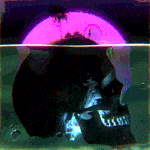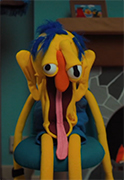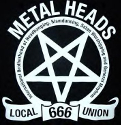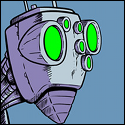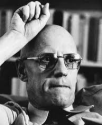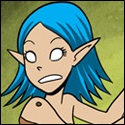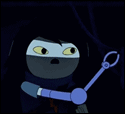|
Autonomous Monster posted:And it's a very sad book. A lot of it seems to be about Banks trying to come to terms with his impending death and- I haven't finished it yet, but I looked ahead a little- failing. Badly.
|
|
|
|

|
| # ? May 14, 2024 23:25 |
|
Autonomous Monster posted:Picked up a copy of The Quarry yesterday. It's not. The similarities are a tragic coincidence. And Banks, to his infinite credit, said that he never felt the same outrage at the world that his character did.
|
|
|
|
(Inversions spoilers) big scary monsters posted:Probably you already figured it out, but Vosill and DeWar are from the Culture and possibly SC. They are two of the friends in DeWar's story about Lavishia. Also Vosill's jewelled knife is actually a knife missile, which is how she escapes the torture room. Don't know if that makes any difference to your understanding of it. Yeah I did get all of that, I guess I just don't feel like their missions had particularly satisfying conclusions. Like I say, DeWar's was slightly more satisfying, but the conclusion of Vossil's story was very exciting from an action perspective but I don't know that it actually 'says' anything.
|
|
|
|
Yeah, fair enough then. I think that the lack of a big conclusion that draws everything together and ties up all the loose ends is somewhat typical of the Culture books. In a way it adds to the sense that the stories take place in a "real", complicated and active universe. The characters have lives that go beyond the story told in any particular book - they were doing stuff before we began reading about them and unless they die during the book they carry on doing other stuff afterwards too. I also think that Vosill's story has a more satisfying conclusion if you consider that it isn't actually a story about her. It's Oelph's diary/spy log, and Oelph is arguably the protagonist in this book. He might not be doing anything particularly momentous and certainly isn't a heroic figure or the guy whose actions shape the world, but he's a witness to all the interesting stuff that does happen and we hear about it primarily as it relates to him. It's all about his thoughts, his fears and hopes and feelings. At the end of the book Oelph gets the happy ending where he stops being Vosill's assistant and is given the means to become a doctor in his own right. All the growing as a person and overcoming adversity and whatever else main characters are meant to have happen to them happens to him, while Vosill and DeWar basically jump into the story fully formed and leave it again without having really changed at all. Vosill's story isn't finished, but her story as it relates to Oelph is, and he himself all but gets the "and he lived happily ever after" treatment. If you look at things with that in mind I think that there is a satisfying conclusion in the traditional sense. But honestly most of that stuff I only came up with after giving it some more careful consideration just now, at the time that I read the book I was perfectly happy with how things ended so maybe I'm just a more passive or easily satisfied reader than you.
|
|
|
|
big scary monsters posted:Yeah, fair enough then. I think that the lack of a big conclusion that draws everything together and ties up all the loose ends is somewhat typical of the Culture books. In a way it adds to the sense that the stories take place in a "real", complicated and active universe. The characters have lives that go beyond the story told in any particular book - they were doing stuff before we began reading about them and unless they die during the book they carry on doing other stuff afterwards too. big scary monsters posted:I also think that Vosill's story has a more satisfying conclusion if you consider that it isn't actually a story about her. It's Oelph's diary/spy log, and Oelph is arguably the protagonist in this book. He might not be doing anything particularly momentous and certainly isn't a heroic figure or the guy whose actions shape the world, but he's a witness to all the interesting stuff that does happen and we hear about it primarily as it relates to him. It's all about his thoughts, his fears and hopes and feelings. At the end of the book Oelph gets the happy ending where he stops being Vosill's assistant and is given the means to become a doctor in his own right. All the growing as a person and overcoming adversity and whatever else main characters are meant to have happen to them happens to him, while Vosill and DeWar basically jump into the story fully formed and leave it again without having really changed at all. Vosill's story isn't finished, but her story as it relates to Oelph is, and he himself all but gets the "and he lived happily ever after" treatment. big scary monsters posted:If you look at things with that in mind I think that there is a satisfying conclusion in the traditional sense. But honestly most of that stuff I only came up with after giving it some more careful consideration just now, at the time that I read the book I was perfectly happy with how things ended so maybe I'm just a more passive or easily satisfied reader than you. All that said, I definitely recognise that Inversions was super well written, and plenty of the vignettes and characters got me quite involved, I just don't feel like the overall narrative arc was particularly interesting or ultimately satisfying. e: Thanks for talking to me about it. 
Those On My Left fucked around with this message at 05:05 on Jun 23, 2013 |
|
|
|
Those On My Left posted:Arg! Actually, I like this less, because I was really happy with the protagonist being female. Banks is reasonably good at writing interesting female characters, but sometimes he misses the boat completely - there was not a single female character in Look To Windward, which is my favourite Culture book. I also felt like Oelph was actually a pretty pathetic character - his longing for he doctor is pretty juvenile and I felt like we were meant to roll our eyes at it. I certainly did. Oelph is a microcosm of the societies the Culture contacts and guides; well-meaning, ambitious, but like you say kind of juvenile and out of his depth. These aren't supposed to be fatal character flaws though, just obstacles and unrealized potential. Also who cares if she's not the protagonist? She's still a really cool supporting character and mentor, and you don't see a whole lot of women in that archetype either.
|
|
|
|
Tuxedo Catfish posted:Oelph is a microcosm of the societies the Culture contacts and guides This is what I meant about being a passive reader. I read loads of books and I generally enjoy them and follow the plot and appreciate the cool world building and big set pieces and character interactions and stuff. But I'm pretty terrible at reading the subtext and I tend to completely miss stuff like this until I start discussing the book with someone and actually have to start thinking about it properly.
|
|
|
|
Tuxedo Catfish posted:Also who cares if she's not the protagonist? She's still a really cool supporting character and mentor, and you don't see a whole lot of women in that archetype either. Well, I care, because I get a bit tired of female characters whose whole or primary point is to influence the character development of a man. But anyway, if that's how I was meant to see Vossil, well, either I failed or the book failed. In my mind she was absolutely the protagonist in that storyline. She was the character I was most interested in. I was much less interested in Oelph's development than in her navigation of Quience's society. Those On My Left fucked around with this message at 05:05 on Jun 23, 2013 |
|
|
|
She's not there for only that purpose -- I agree, it would be pretty weak writing if she were. She has her own well-developed motivations and character arc, (it's indirectly implied that she and DeWar have swapped perspectives by the end of the novel, or at least acknowledged the flaws in their own approach), she represents the Culture without being a cardboard stand-in for it, she's even arguably one of the more realized and human Culture characters in the series in that she's not borderline-superpowered like Zakalwe or Gurgeh, or a mostly-passive observer to the actions of a starship Mind like many of the other Culture protagonists; she makes Contact, gets attached, screws up, beats herself up about it, makes some hopeful progress anyways. I should also clarify that I don't really have a horse in the she is / she isn't the main character argument; I just don't see that it makes much of a difference.
|
|
|
|
Tuxedo Catfish posted:She's not there for only that purpose -- I agree, it would be pretty weak writing if she were. She has her own well-developed motivations and character arc, (it's indirectly implied that she and DeWar have swapped perspectives by the end of the novel, or at least acknowledged the flaws in their own approach), she represents the Culture without being a cardboard stand-in for it, she's even arguably one of the more realized and human Culture characters in the series in that she's not borderline-superpowered like Zakalwe or Gurgeh, or a mostly-passive observer to the actions of a starship Mind like many of the other Culture protagonists; she makes Contact, gets attached, screws up, beats herself up about it, makes some hopeful progress anyways. I don't think we really disagree that much. I was chiefly responding to this quote by big scary monsters: "It's all about his thoughts, his fears and hopes and feelings." Sounds like you don't agree with that anyway. I did think she was quite fleshed out and interesting, although there was one thing that I didn't buy at all: Her confession of love for King Quience, and her disintegration into tears afterwards.
|
|
|
|
Those On My Left posted:I did think she was quite fleshed out and interesting, although there was one thing that I didn't buy at all: Her confession of love for King Quience, and her disintegration into tears afterwards. I think it actually kind of works. The fact that she's a Contact agent and in no real danger at any time means that all the bad things the King (and his quasi-medieval society) represent bounce right off of her, because the Culture really is a post-everything society where sexism, nationalism, etc. are nothing but a historical footnote. She can afford to see the best in people even when it's inaccurate and not necessarily best for them or her. It's a theme that's repeated in many of the Culture novels, especially the better ones -- Gurgeh falls in love with Azad as a whole because he has this rosy birds-eye view of it, the entirety of Look to Windward happens because the Culture's super-enlightened condescension backfires, and in Inversions Vosill is so emotionally invested in changing Quience and his society that it affects her judgement. She knows this, and forces herself to take a step back, and I think it's reasonable to depict that decision as painful. And it's not even as if she's singled out for that kind of plot because she's a woman; DeWar experiences something very similar, just in ideological reverse. The combination of his affection for Lattens and Perrund and his dedication to minimal / reactive interference blinds him to both the danger she represents and the cost of Urleyn's (relatively) "progressive" empire. Tuxedo Catfish fucked around with this message at 05:59 on Jun 23, 2013 |
|
|
|
Tuxedo Catfish posted:I think it actually kind of works. The fact that she's a Contact agent and in no real danger at any time means that all the bad things the King (and his quasi-medieval society) represent bounce right off of her, because the Culture really is a post-everything society where sexism, nationalism, etc. are nothing but a historical footnote. She can afford to see the best in people even when it's inaccurate and not necessarily best for them or her. Thanks for that. I see what you're getting at, although my problem was that the Vossil/Quience romance is never even hinted at as a possibility. Maybe that can be explained by the fact that Oelph is the narrator but it really was completely out of the blue to me, and Vossil's reaction was pretty painfully stereotypical. Yes, yes, I'm aware of the irony of complaining that something came out of the blue in an Iain M Banks novel, thank you very much. DeWar's storyline was much more believable because it was, to me, much easier to see how he could have missed the threat posed by Perrund. With Vossil there is a lot of "I thought I saw my mistress grit her teeth when the King said the fourteenth misogynistic thing for the day," and "The King cried out as my mistress massaged his back even harder after he said a really sexist thing" which made it difficult to believe that she actually loved him romantically all along. It is pretty great to read what you got out of the book, though. It might not have been particularly thematically powerful for me but I'm glad it was for someone.
|
|
|
|
Inversions and Surface Detail are by far my favorite Culture novels, because they're most distinctly about the Culture doing the right thing in the worst way; as individuals in Inversions, and as a society in Surface Detail.
|
|
|
|
Tuxedo Catfish posted:Inversions and Surface Detail are by far my favorite Culture novels, because they're most distinctly about the Culture doing the right thing in the worst way; as individuals in Inversions, and as a society in Surface Detail. Huh. I really liked Surface Detail but it doesn't crack the top four for me: Look to Windward, Player of Games, Use of Weapons, Excession. I am now moving on to Broken Angels by Richard K Morgan, which is the sequel to Altered Carbon. I highly recommend Altered Carbon to anyone who likes both Banks and William Gibson (in particular Neuromancer). It is a cybernoir whodunnit with a lot of tech, violence, sex, drugs, and a really great plot with an emotionally satisfying conclusion. e: After Broken Angels I am doing The Algebraist.
|
|
|
|
Altered Carbon is like the anti-Banks. It's a world where many of the same technologies that enable the Culture instead further deepen a small elite's hold on power, extending poverty and economic stasis past the point of conventional death.
|
|
|
|
I recently read the Altered Carbon trilogy, and I'm afraid to say I was a bit unimpressed. They're all too long, I'm not a big fan of the prose style, and Kovacs really comes off as a bit of a Mary-Sue. I know it's a staple for whodunnits to have a hard-bitten, ultra-competent lead character, but it still seemed a bit adolescent to me. Pretty good world building, though, I'll happily say that. I think, to be honest, Banks has ruined most sci-fi for me. I'm very much needing escapism at the moment, so I'm reading any sci-fi I can lay my hands on - I'm up to Alistair Reynolds at present. He's not a patch on Iain.
|
|
|
|
|
Nobody is. The only modern sci fi that even becomes to compare is Light by M. John Harrison. Everything else I've tried just seems childish.
|
|
|
|
If Light is your standard of parity there are a number of science fiction/fantasy writers working today who are up to standard. I think Banks is an exemplar and a pioneer, a man who'll never matched on his own terms. But he's not the only talent in play - in fact I'd say we currently have the best SF/F we've ever had.
|
|
|
|
Embassytown is right up there with anything in the Culture series, if not better. I haven't read the rest of Mieville's sci-fi to compare, though.
|
|
|
|
I can't think of any contemporary SF authors who can do Banks' style as well as him, but outside of the space opera in high tech utopia subgenre there are certainly others who I think are pretty great. I really enjoyed Peter F. Hamilton's Great North Road, he is another SF writer actually able to create good characters as well as worlds. Greg Egan has written some interesting stuff about non-human/posthuman intelligence if you don't mind things getting pretty abstract and weird - Diaspora was the first thing I read by him, but I think Permutation City is better and maybe more approachable. Axiomatic is a cool short story collection too. And I recently got through Hannu Rajaniemi's The Quantum Thief which I'd also firmly recommend. There's a big SF thread in this subforum which I don't really keep up with but was worth checking out last time I gave it a look.
|
|
|
|
Barry Foster posted:I recently read the Altered Carbon trilogy, and I'm afraid to say I was a bit unimpressed. They're all too long, I'm not a big fan of the prose style, and Kovacs really comes off as a bit of a Mary-Sue. I know it's a staple for whodunnits to have a hard-bitten, ultra-competent lead character, but it still seemed a bit adolescent to me. I am OK posted:Nobody is. The only modern sci fi that even becomes to compare is Light by M. John Harrison. Everything else I've tried just seems childish. Tuxedo Catfish posted:Embassytown is right up there with anything in the Culture series, if not better. I haven't read the rest of Mieville's sci-fi to compare, though. Has anyone read Kazuo Ishiguro's Never Let Me Go? What did you think of it?
|
|
|
|
Those On My Left posted:I have been recommended Mieville's Perdido Street Station but it might take me a while to get there. I wasn't counting it as science fiction. The Bas-Lag books are great, but they're pretty much about labor and capital as opposing magical forces. 
|
|
|
|
Perdido Street Station and the rest of Bas-Lag I would actually count as a magical steampunk setting, but I generally avoid using that word for them because it'll tend to put people off or make them think they're lower quality than they actually are.
|
|
|
|
China Miéville himself would probably vomit all over you in disgust if you described his books as "steampunk" to his face.
|
|
|
|
Hedrigall posted:China Miéville himself would probably vomit all over you in disgust if you described his books as "steampunk" to his face. Hah, yep. Along with Pratchett and Banks, Mieville is one of the authors who I think is just on another level completely.
|
|
|
|
Those On My Left posted:Sad to hear you didn't get into it. I found the writing super-evocative. You're absolutely right that the character was hardly innovative, but I honestly didn't mind that because I thought that story didn't need a ground-breaking protagonist, it had enough going for it otherwise. It's a lovely book but not really sci fi as its popularly seen. It's awkward and careful and never quite honest, which I see as positives but many find these frustrating. I recommend it.
|
|
|
|
Hedrigall posted:China Miéville himself would probably vomit all over you in disgust if you described his books as "steampunk" to his face. But they are...? Like Pratchett, I just never get what everyone sees in his stuff. It's so earnest.
|
|
|
|
Those On My Left posted:
Never Let Me go is fantastic and knocked me on my rear end more than just about anything else ever has. Ishiguro has since become one of my favorite authors. It's not very scifi though, if that matters.
|
|
|
|
Barry Foster posted:I felt the same way as you, but eventually I reconciled myself to the book (Hydrogen Sonata) by basically coming to this realisation - it was all a Big Shaggy Dog Story. That's the whole point - there isn't some grand amazing meaning behind everything, it just is. Virtually every character in the book is convinced that something cosmically massive and conspiratorial is going on, but it all ends up just being silly petty nonsense. It was absolutely a huge loving waste of time, but there are worse ways to spend your time than following the story up until that point. Edit: quote:I have been recommended Mieville's Perdido Street Station but it might take me a while to get there. Oh god I loathe that book. Just hate it. He's a good writer, but his smug addiction to vileness and utterly slipshod plotting and world building enraged me so much I finished the book in a vituperative fury, mutilated the book with pinking shears and fastballed it into the rubbish bin. Never done that before or since. YMMV, natch. And it's not even like I think he's bad, it's just that I really don't like that book of his. sebmojo fucked around with this message at 05:42 on Jun 26, 2013 |
|
|
|
I didn't hate PSS but by far the best part of the book is the first third. I could read an entire novel of the mundane, everyday life of people living in a fantasy police state but the minute it turns into an action adventure it goes downhill fast.
|
|
|
|
sebmojo posted:I feel this way about Matter, tbh. The 'Matter' of the story really doesn't... but nothing does, to people who are not on the same level as the thing that is happening. Matter feels kinda like he's taking the idea of the pointless story and using it to make a point.
|
|
|
|
Tuxedo Catfish posted:I didn't hate PSS but by far the best part of the book is the first third. I could read an entire novel of the mundane, everyday life of people living in a fantasy police state but the minute it turns into an action adventure it goes downhill fast. District 9 is like the movie equivalent of this 
|
|
|
|
big scary monsters posted:
Vosill is, yes, but didn't DeWar essentially go native and run off with the concubine who murdered the man he was trying to influence? I suppose that doesn't preclude him from returning to the Culture, but I can't see SC being very happy about him potentially jeopardising the Contact because he loved her/felt sorry for her.
|
|
|
|
Daktar posted:Vosill is, yes, but didn't DeWar essentially go native and run off with the concubine who murdered the man he was trying to influence? I suppose that doesn't preclude him from returning to the Culture, but I can't see SC being very happy about him potentially jeopardising the Contact because he loved her/felt sorry for her. Nobody knows what happened to DeWar. There are two conflicting accounts, one in which he kills Perrund and one in which he marries her, and in both versions he returns to the "Half-Hidden Kingdoms" which are both a real place in the world of Inversions and where DeWar claims to have come from.
|
|
|
MikeJF posted:Matter feels kinda like he's taking the idea of the pointless story and using it to make a point. I've said it before, but Matter is basically a sci-fi rewrite of Don Quixote. Which is why it rules, hard.
|
|
|
|
|
Barry Foster posted:I've said it before, but Matter is basically a sci-fi rewrite of Don Quixote. Which is why it rules, hard. Yep. It's also sci-fi Shakespeare with all the speeches. I love it too, it's sort of the redheaded stepchild of M Banks books but I actually prefer it to Surface Detail and Hydrogen Sonata which are more popular.
|
|
|
|
I just started reading the culture series and finished Consider Phlebas last night. It was so  . I liked Horza, and having him not only die but also his pregnant hairy girlfriend and his entire race? What the fuckkkkkkkkkk. The changers were pretty cool I'm sad they are extinct now . I liked Horza, and having him not only die but also his pregnant hairy girlfriend and his entire race? What the fuckkkkkkkkkk. The changers were pretty cool I'm sad they are extinct now 
|
|
|
|
That hit me hard, but in the end I loved it: It hammered home that you feel a lot for Horza and the CAT crew and were really invested in their adventure. However, in the end, it counted as hardly even a blip on the radar of the war, something that probably wouldn't even be worth mentioning. It gives you an idea of what the emotional power behind the deaths of all 850 billion sentients during the war must have been, it's a good way to think about war on our own planet. Oh, while I'm here, I noticed something new about Use of Weapons: There are a couple of little tells that "Cheradenine" is Elethiomel, things you wouldn't notice until you re-read it: the giant plasma rifle he prefers would almost certainly be reminiscent of the large rifles he was so skilled at using, more skilled than Cheradenine was, which is why he was so emphatic about using it over a much smaller CREWS or something. He's also an excellent hand to hand fighter, but makes a couple of mistakes that cost him during his fight on Solitol - as he described it, Cheradenine was always better. I keep coming back to Use of Weapons because it really is so different from the rest of the Culture novels, even though I love those. Use of Weapons is a story that is very human, but just couldn't be set on Earth. Sometimes I wonder if Banks invented the Culture universe to accommodate that particular story. Red Crown fucked around with this message at 03:57 on Jul 4, 2013 |
|
|
|
Now I've just finished Player of Games: I liked this one a lot more than Consider Phlebas but I liked both overall very much. This book though, is a much better representation of the culture since you're in it, and you learn much more about it, and I really like the whole game player junk. Azad and the planet and Gurgeh's drive to win and all the little twists even if they were obvious or whatever made me smile. You can really see why the culture is such a beast, galactically.
|
|
|
|

|
| # ? May 14, 2024 23:25 |
|
Jerkface posted:Now I've just finished Player of Games: I liked this one a lot more than Consider Phlebas but I liked both overall very much. This book though, is a much better representation of the culture since you're in it, and you learn much more about it, and I really like the whole game player junk. Azad and the planet and Gurgeh's drive to win and all the little twists even if they were obvious or whatever made me smile. You can really see why the culture is such a beast, galactically. Glad you enjoyed it. I know several people who started with Player of Games and never found a Culture book that they liked more than it. (I was like that right until I read Look to Windward.) It is definitely the most "Culture = good guys" book, but I also feel like it has the most driven and focused narrative.
|
|
|


